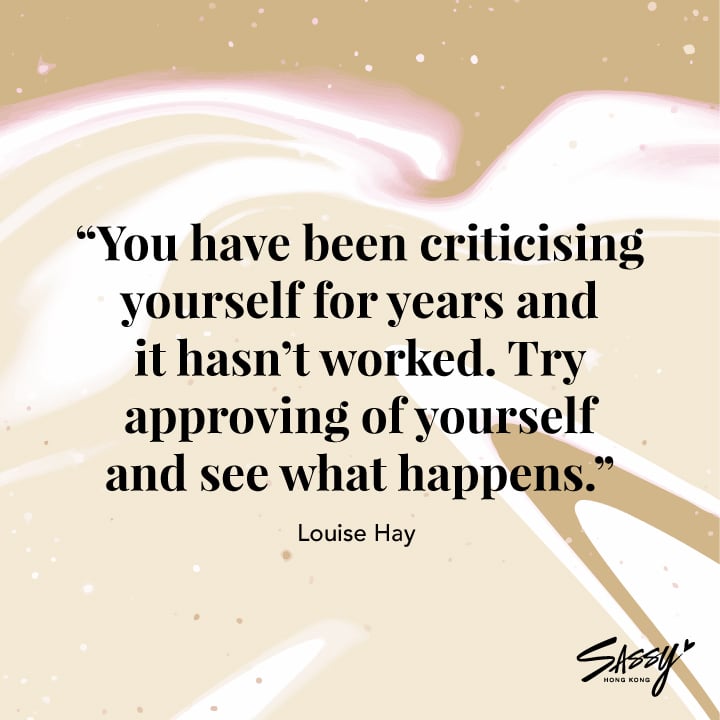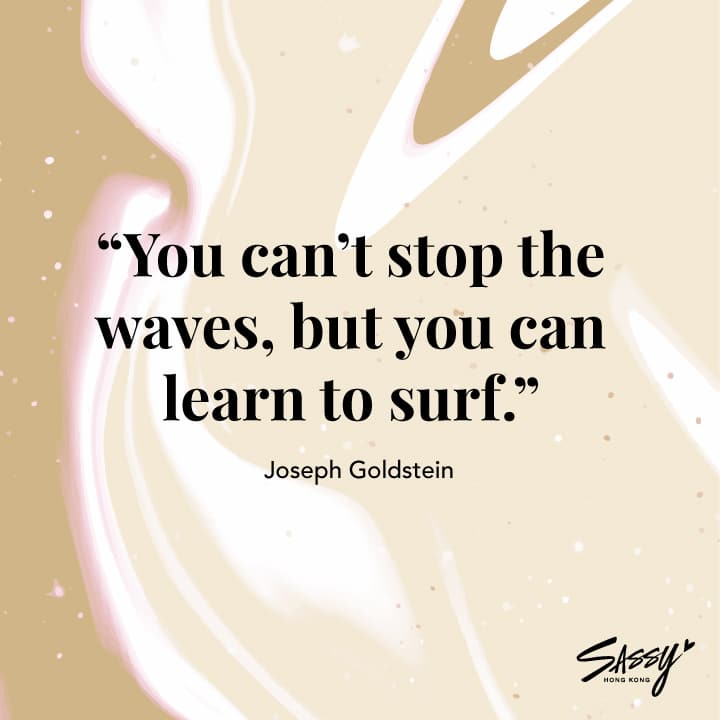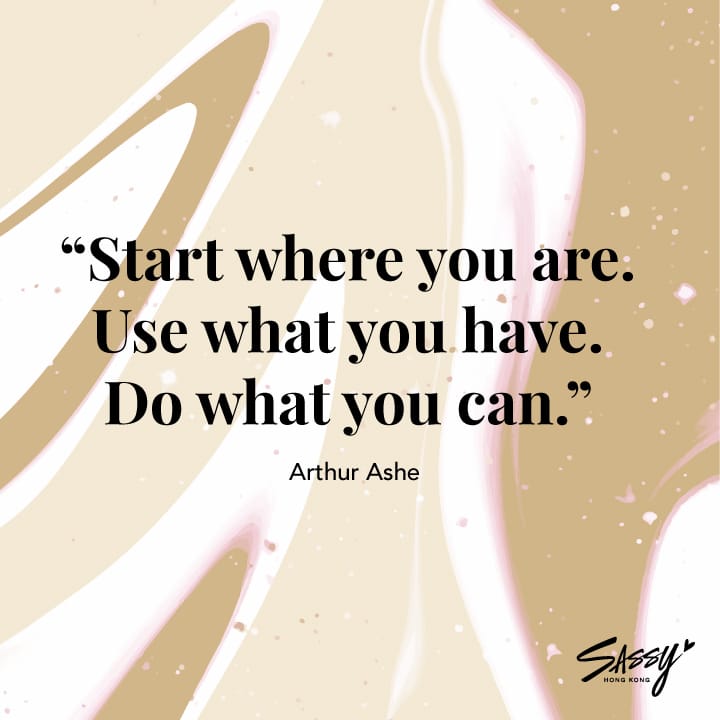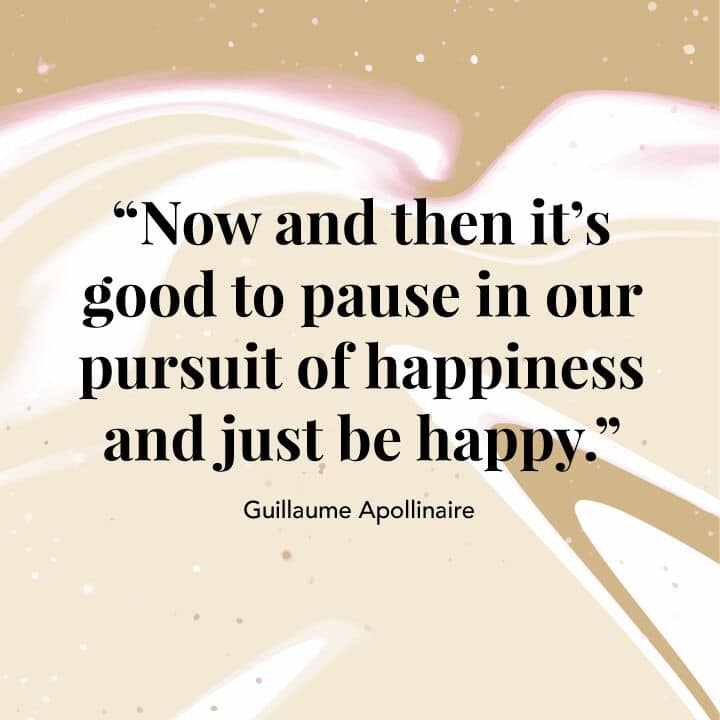We can all relate to feeling demotivated or nervous. There are many situations in which we are perfectly physically prepared to do the things we want to do, yet our own thoughts and feelings stand in the way.
The human brain is more complex than the most powerful supercomputer, and this is part of what has enabled our species to survive and thrive. Our constantly evolving minds are capable of generating vivid recollections of events from the past, to prevent us from repeating old mistakes. We can also project into the future to anticipate possible threats and sources of danger, allowing us to plan accordingly. Our automatic emotional response acts as an internal smoke alarm, alerting us to danger and to prepare us for action. However, the same abilities that enable us to learn, problem solve and anticipate danger have the potential to trap us and pose obstacles to our success. We often don’t realise how much we live through the stories our minds tell us, and if we aren’t careful, this can lead to patterns that can become detrimental to our quality of life.
Mindfulness is now a multimillion-dollar industry, and it is growing in popularity. Therapy models such as Acceptance and Commitment Therapy (ACT) promote the use of mindfulness skills in becoming more aware of thoughts and feelings so that you can take control of your mind, instead of your mind controlling you.
The good news is that we can reduce the impact of the most common pitfalls of our complex minds with a few simple ideas derived from psychological therapies like ACT. By learning to become aware of some of the common ways our minds trap us, we can give ourselves the best chance of succeeding at work, in relationships and in our own personal development – without our thoughts and feelings standing in the way.
Truth: Our minds are always chattering away, giving us orders about what we should and shouldn’t do, and telling us about our strengths and weaknesses. This inner monologue helps us to do our jobs, hold conversations and achieve many of our goals. But it can also be the source of a great deal of psychological pain.
The automated link between thoughts and actions means that thoughts like “what if I fail this interview?”, can cause us to act as though failure is inevitable. It is frequently the case that our thoughts are not that helpful to us, and we are (embarrassingly) not very good at telling the difference between a useful, motivating thought and a self-defeating thought that destroys our confidence.
Action point: Ask yourself “does this thought help me to do what I want to do?”. If it doesn’t, acknowledge it as a thought, imagine it floating away, and reengage in what you are doing in that moment. Learn to tune in to what your mind is saying to you, particularly at times when you notice yourself feeling anxious, angry or demotivated. Remind yourself that your thoughts are just that: thoughts! No matter how convincing or persuasive those negative thoughts are, you actually have a choice about whether or not you do and believe what they say.
Truth: In his popular self-help book, Russ Harris (one of the pioneers of ACT) writes, “Evolution has shaped our minds so that we are almost inevitably destined to suffer psychologically: to compare, evaluate and criticise ourselves; to focus on what we’re lacking; to be dissatisfied with what we have; and to imagine all sorts of frightening scenarios, most of which will never happen”.
Many of us cite this constant stream of “tough love” as the source of our success, fearing that we will become too complacent or too arrogant without it.
However, it is likely that we are succeeding in spite of these negative, self-critical thoughts, not because of them. If self-critical thinking goes unchecked, it’s more likely to make us feel worse, and it can often pose an obstacle to us doing the things we need to do.
Action point: Try to employ skills in self-compassion to overcome negative thinking. Ask yourself: “What would I say to a friend in this situation?”. When you notice your mind kicking into self-criticism, acknowledge it as an unavoidable habit of your complex, evolved brain that you do not have to take at face value.
Truth: Like our constant stream of projected thoughts, emotions are a product of evolution. Emotional responses are there to protect us from danger. Emotions like fear evoke a strong physical response that prepares us to react to danger and protect ourselves from a threat. However, we tend to treat “negative” emotions, like anxiety, sadness or apathy, as a threat. In addition, we might believe that if we don’t control these emotions, they will escalate and spiral out of control.
Contrary to popular belief, unpleasant emotions alone cannot cause us harm. We “habituate” to emotions when we stay in the emotion-provoking situation, in the same way that our bodies adjust to the temperature when we get into a hot bath. ACT uses the metaphor of the sky and the weather to help to explain the relationship between us and our emotions: our emotions are like the weather, and we are like the sky. While a big storm is overhead, the sky may be obscured. Once the storm passes, the sky will still be there, unharmed by the storm.
Action point: During strong emotional storms, ground yourself by taking five deep breaths. Try pushing your feet into the floor to focus on bringing yourself back into your body. Recognising that feelings are unpleasant, but harmless, can help hold you steady until the rain passes.
Truth: It is far more difficult to get started with a task, or face a daunting situation, if your feelings are not helping you to get there. Unfortunately, this means that we can waste a lot of time waiting for motivation or confidence that may never arrive.
The truth is that our feelings do not control our actions. Have you ever pushed through a tough exercise class or a difficult work meeting, despite your mind shouting, “I can’t do this”? You are in charge of what you do, no matter what is happening with your thoughts and feelings.
Action point: Trust your experience, not just your mind. Our minds are frequently wrong about our capabilities. If you want to go to the gym but you can’t be bothered, acknowledge that you are feeling demotivated, but decide on a reason to put your trainers on anyway. Remind yourself of the adrenaline rush you get afterwards, remind yourself that it’ll make your next hike in the heat a little more enjoyable. You will usually find that if you follow through with a long-term-gain situation (even when your mind is screaming at you to stay in bed), it will work in your favour.
Truth: It is generally agreed that there are nine basic human emotions that are universal across all cultures, five of which are considered by many to be negative! However, society today can lead us to believe that if we aren’t feeling happy the majority of the time, we must be doing something wrong.
This can mean that we spend a lot of our time trying to feel happy. If we aren’t conscious of how we spend our time and energy, these efforts can actually get in the way of us engaging in activities that genuinely make our lives better.
Action point: Ask yourself, “if I could wave a magic wand so that I always felt happy and contented, what would I be doing with my time?”. Try making a list of some things you enjoyed in your childhood that you’d love to engage in again – taking a dance class, spending time on a beach, making something tangible. Use your answers to guide how you can spend your time doing what matters to you.
Editor’s Note: This article was first published in April 2019 and was updated in August 2020.





 Eat & Drink
Eat & Drink



 Travel
Travel


 Style
Style


 Beauty
Beauty



 Health & Wellness
Health & Wellness



 Home & Decor
Home & Decor



 Lifestyle
Lifestyle
 Weddings
Weddings















